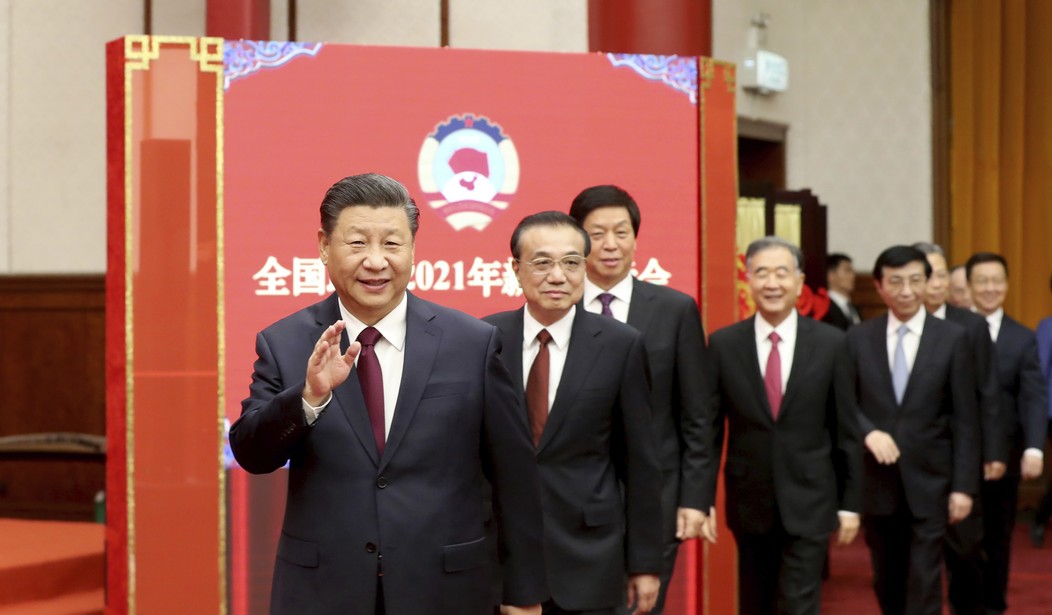The ongoing mutations in the coronavirus suggest that simply because a society has a certain resistance now does not mean it will have the same in the future. China’s CDC admitted that its vaccines, never particularly effective even against the original strain, will struggle against the emerging variants. Its war against the pandemic, like much of the world’s, is likely to be more protracted than anticipated.
“We will solve the issue that current vaccines don’t have very high protection rates,” Gao said in a presentation on Chinese COVID-19 vaccines and immunization strategies at a conference in the southwestern city of Chengdu. “It’s now under consideration whether we should use different vaccines from different technical lines for the immunization process.”
China is not alone in this regard. “India’s coronavirus cases were falling. Then variants emerged and a second wave put people as young as 14 in hospital,” wrote an Australian news site.
NBC News says: “Covid cases, deaths surging around the world as variants spread, vaccination lags. … Hospitals in Turkey and Poland are filling up fast. Pakistan is restricting domestic travel to bring a surge in coronavirus infections under control. Even Thailand, which has weathered the coronavirus pandemic far better than many nations, is now struggling to contain a new Covid-19 surge.”
The pandemic can still be beaten, it is just that it will be harder than originally thought. It is also clear that whether or not the coronavirus originated in a lab or through some yet-to-be-identified “missing link,” that events have taken on a dynamic unforeseeable at the start.
China is worried because the possibilities are open-ended. Things have passed beyond easy reckoning. The world’s biotech resources, pharmaceutical production capacities, logistic chains, and economic endurance are gradually being drawn into a race with the implacable evolutionary forces of nature. It could be a quagmire with no guarantee that human institutions will prevail.
Even if states do beat down the pandemic of 2020, it will be at a cost far greater than originally anticipated in the heady “two weeks to flatten the curve” days. Governments and economies will find themselves stressed as never before. One of the reasons Erdogan has reportedly softened his rhetoric against the usual enemies is because Turkey is broke. Events are punishing those who counted, without preparation, on a swift and easy return to the old status quo, by making them modify their plans. Brookings forecasts that the world, rather than snapping back from 2020, is “stumbling toward a two track recovery.”
The world economy faces sharply divergent growth prospects across various regions, as prospects of a uniform swift snapback from a dismal 2020 have become clouded. …
Vaccination euphoria and attendant hopes of a rapid, broad-based recovery have been tempered by a fresh COVID-19 wave sweeping through a number of economies, putting their growth trajectories at risk.
The U.S. and China are shaping up to be the main drivers of global growth in 2021.
One could fall by the wayside. China is naturally concerned that mRNA technology could provide the US with an advantage. Given the ineffectiveness of its own vaccines, an outbreak of newer variants might condemn it to the slower lane of a two-track recovery. So the Chicoms are adjusting course.
The New York Times writes that the “rise of variants in Europe shows how dangerous the virus can be.” But it also illustrates how complex and reactive nature can be. The Covid experience should sober those who confidently believe an intergovernmental body can control nature. The difficulty of projecting the evolutionary trajectory of a single virus is likely to be dwarfed by the task of anticipating the effect of government programs upon the climate.
Yet geoengineering is in the cards. The Scientific American writes, “A controversial policy to address climate change by artificially cooling the planet deserves more research, according to a panel of leading U.S. scientists. But only if it is carefully governed.”
That’s the major conclusion from a report on solar geoengineering released yesterday by the National Academies of Sciences, Engineering and Medicine. The report recommends that the federal government invest up to $200 million over the next five years to develop a national research program.
For most of the Woke, it is still full steam ahead to the end of history. The environmentalist John Muir once observed that “when we try to pick out anything by itself, we find it hitched to everything else in the universe.” Someone else added, “sometimes we can open a Pandora’s box or kick a hornet’s nest without realizing it. In a dynamic world, you can never do merely one thing.”
That does not chasten believers in the Five Year Plan. Bernie Sanders famously tweeted:
Once a vaccine for coronavirus is developed, it should be free.
— Bernie Sanders (@BernieSanders) March 8, 2020
To the Left, no problems exist that money won’t solve. The Chinese politburo is beginning to realize that something may have started that it cannot fully control. Whether the Western progressives have reached the same conclusion remains to be seen.
Books: Inconvenient Facts. You have been inundated with reports from media, governments, think tanks and “experts” saying that our climate is changing for the worse and it is our fault. Increases in droughts, heatwaves, tornadoes, and poison ivy—to name a few—are all blamed on our “sins of emissions” from burning fossil fuels and increasing carbon dioxide in the atmosphere.










Join the conversation as a VIP Member